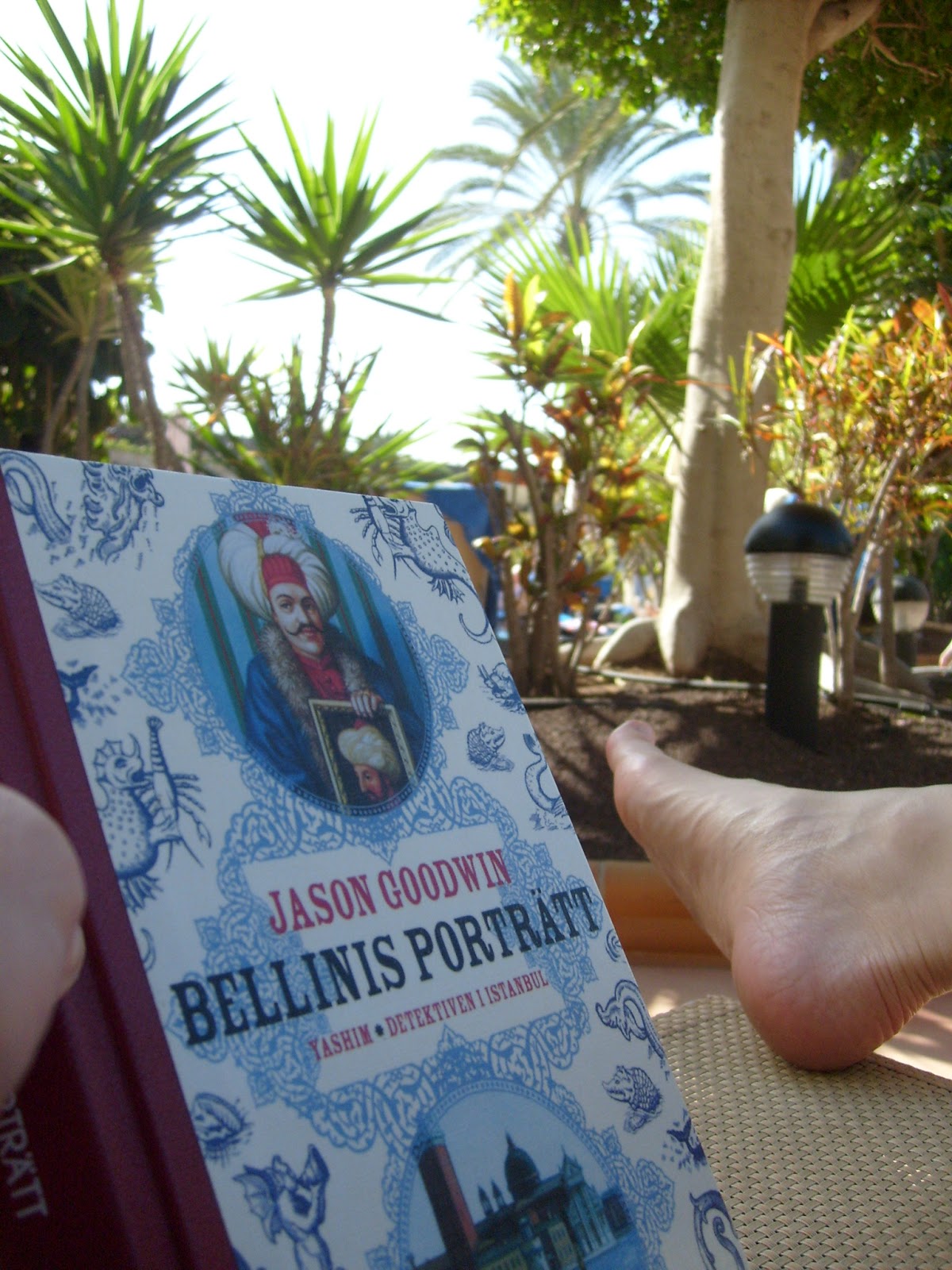For a week on a lounger, it is necessary to bring a proper detective story. I brought two, and one of them I finished while still under the palmtrees. Jason Goodwin, historian and Byzantine specialist, has written four volumes so far in a series about the eunuch Yashim, and this is the third, "The Bellini Card". I chose it after seeing Goodwin appear in a documentary on Swedish television only a week or so before Christmas, about Topkapi Palace, the old residence of the Sultans. The library had it, and so I packed it.
I just searched my own blog, to see what I had written about the other two, but I can´t find that I have written about this author before. It doesn´t seem that long ago that I read him, but it must be pre-blog, I presume. It really, really doesn´t feel that long. Probably because Yashim and the stories of Istanbul in the 1800´s made an impression on me, and is very much alive in my memory. I have read better books than Goodwin´s last year, that I can hardly remember at all, so there you are: quality and impact is not necessarily linked.
Yashim is not the kind of eunuch you might think of, when you think of a sultan´s palace. He is not fat, soft-skinned, or squeeky-voiced. He was already a young man, well into puberty, when enemies of his father killed his mother and kastrated him. After that, he was sent to the Ottoman Sultan´s court, to be educated and given a place in life. And he has worked for the Sultan since, doing "special services" suited to his talent of being "invisible" and really, really clever. He is like the Sultan´s own James Bond, when he needs to be. When he doesn´t, he is a quiet and peaceful man, mostly interested in cooking. He is such a foodie that he can´t even go on a dangerous mission, without stopping somewhere to make a pilaff or a moussaka. He uses his cooking knife for a weapon, even.
This time, the new, young Sultan wants a painting. This painting, a portrait of a legendary ancestor, is supposedly for sale in Venice. However, an advisor of the Sultan, a pasha, tells Yashim to lay low, that the Sultan is young, inexperienced and that some of his wishes are "like water". Yashim decides to send his best friend, the Polish ambassador Palewski, who is itching to get away from Istanbul for a while (the background story of Palewski is very interesting), to see if the painting can be acquired. He goes disguised as an American art collector, Mr Brett.
Of course, Venitian art dealers turn up dead in the canals of Venice, and Yashim has to come sort things out. And cook a meal. He meets some interesting characters on the way, does some fighting, beds a woman (I know, who would´ve thought - he is a eunuch, isn´t he?) solves the riddle, and in the process the reader has learned quite a few interesting things about Venice´s history.
The one thing that bugs me just a little bit has to do with the tempo. The action scenes just doesn´t feel right in all of this. Yashim is more of a Poirot than a Bond, but Goodwin makes him both. Ok, there is a second thing that isn´t quite ... and that is the sex. Yashim has a very androgynous feel to him, he is considered sexless in Istanbul, and perhaps all that cooking and history also contributes to that. He is called Yashim lala, sort of like "uncle", which is what the eunuchs were called, who had access to the harem, the women´s house, and the Sultan´s private quarters. I can´t really see him make love to... but that would be to spoil it for you. My objections are small, after all, Goodwin is certainly not the only writer who writes crappy sex scenes for no reason at all. And maybe these odd bits that stand out are what makes him so particularly memorable.
The books about Yashim are special. The hero is special, the milieu is special, the plots are well thought out. There is more brain than heart in these books, but what do you expect from an academic? And sometimes (perhaps most of the time), that is just what I want. And I´m not the only one. This series is translated into almost 40 languages.


No comments:
Post a Comment